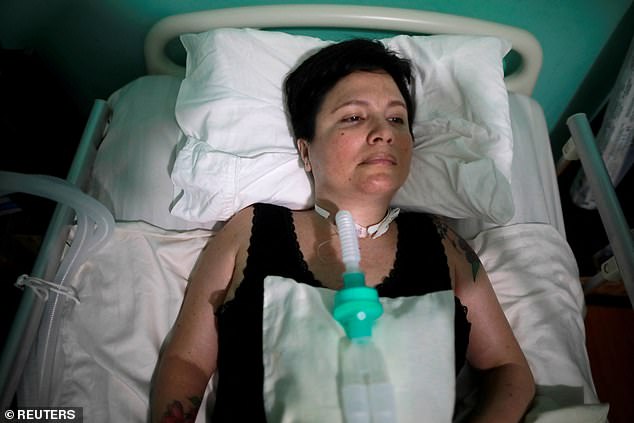A Peruvian psychologist has become the first person in Peru to legally die by euthanasia after fighting for years in court.
Ana Estrada, 47, who suffered from chronic, incurable muscle degeneration since she was 12 and was bedridden for several years, died Monday.
Estrada became the first person in Peru to gain the right to die with medical assistance after becoming a sensation in the conservative country where euthanasia and assisted suicide are illegal.
In 2022, the euthanasia activist won an exception from the nation’s Supreme Court, which upheld a lower court ruling that gave Estrada the right to decide when to end her life, and said that those who They helped would not be punished.
“Ana’s fight for her right to die with dignity has helped educate thousands of Peruvians about this right and the importance of defending it,” her lawyer, Josefina Miró Quesada, said in a statement.
“Their struggle transcended the borders of our nation.”
Ana Estrada, 47, from Peru, has become the first person in the country to legally die by euthanasia after fighting for about five years against the government and the courts for the right to decide when to end her life.
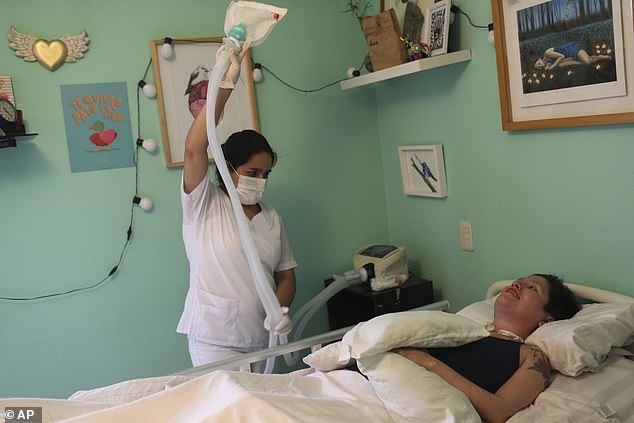
He died on Monday, according to his lawyer, who also said that ‘his fight transcended the borders of our nation.’
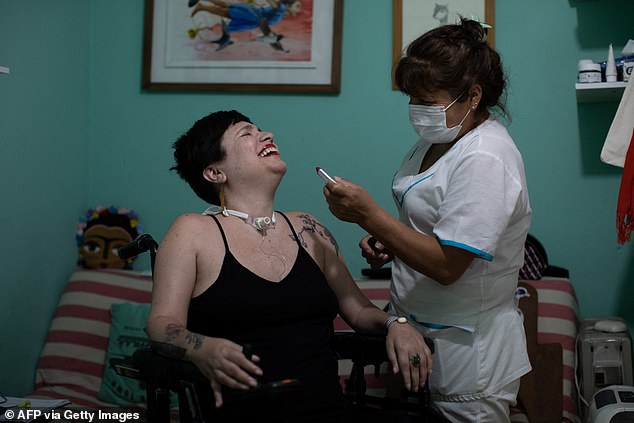
Estrada spent most of her life bedridden after being diagnosed with polymyositis when she was 12 years old. It is a rare disease that affects the muscular system with degenerative deterioration.
Estrada suffered from an incurable and debilitating disease called polymyositis that weakens and deteriorates the muscles of the body.
He began showing symptoms as a teenager and began using a wheelchair in his 20s after losing the strength to walk.
Before her illness completely took control of her life, Estrada earned a degree in psychology and became a therapist.
She earned enough money to buy her own apartment in an empowering move that allowed her to become independent from her parents.
But by 2017, Estrada’s condition had worsened and he could no longer get out of bed.
He began having to rely on ventilators to breathe, which hindered his ability to speak as his voice dropped to a whisper.
And although she struggled to write, Estrada used transcription software to produce a blog called ‘Ana for a Dignified Death’, where she bravely shared her struggles and her decision to seek euthanasia.
By 2022, Estrada had won his historic five-year battle with the Peruvian government and courts to allow him to undergo assisted dying “when the time comes.”

Estrada, who was confined to a bed and breathing with a respirator most of the time, took to Twitter in 2022 to say that her “fight was always defending the right to choose.”
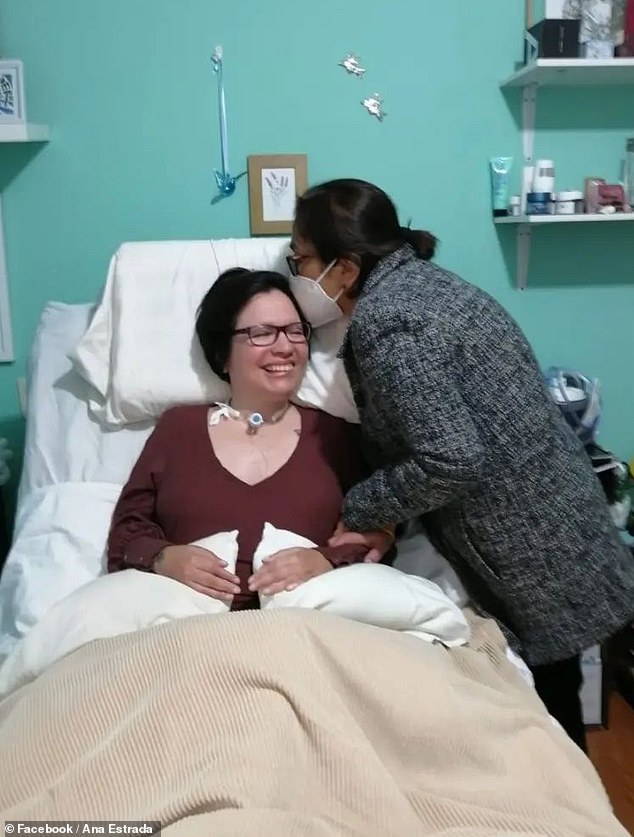
He had participated in court sessions through video conferencing from his bed.
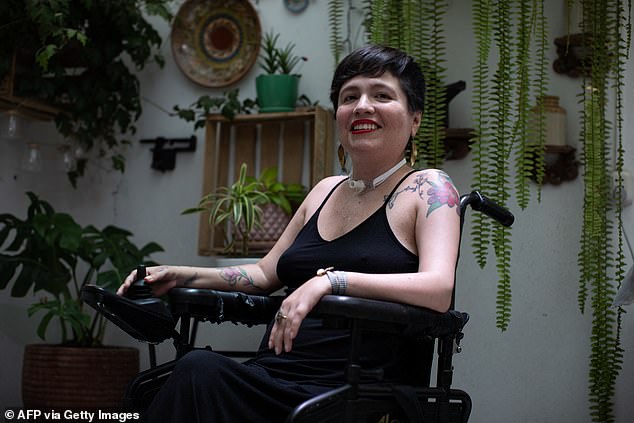
Estrada used transcription software to produce a blog called ‘Ana for a Dignified Death’, where she bravely shared her struggles and her decision to seek euthanasia.
‘It is an individual case, but I hope it serves as a precedent,’ said Estrada after the Ministries of Justice and Health decided to respect the ruling of a judge who recognized it as the right to ‘a dignified death.’
‘I think it is an achievement not only of mine, not only of my cause, but also an achievement of law and justice in Peru,’ Estrada said with a muffled and broken voice.
He had participated in court sessions through video conferencing from his bed.
‘I am free. My fight has always been the defense of the right to choose,’ Estrada tweeted at the time.
‘Today I have achieved it thanks to the people who spread my voice.’
‘I have fought to take back my time and my decisions about my life and my body.
‘Today I have been granted the right to choose when to die. Those who do not understand this will never understand it and will not want to understand it,” he wrote.
‘May my case serve so that we begin to respect our differences. Defend all human rights that need to be heard and attended to. May we be a more just and equal country.’
The court ruling required state health insurer EsSalud to provide “all the conditions” necessary for Estrada’s euthanasia, which must occur within 10 business days of the date she decides to end her life.
Before his death, Estrada considered that the government’s decision would serve as a tool that would allow people to respect the decisions of others, even if they choose not to accept the reasoning of the next individual.
Euthanasia is prohibited in most countries and the Catholic Church opposes it.
Only a handful of countries have legalized euthanasia, including Canada, Belgium and Spain.
Some US states, including Maine and Oregon, allow physician-assisted suicide, in which a doctor provides a terminally ill patient with the means to end his or her life.
Colombia is the only country in Latin America that has allowed assisted dying under certain conditions.


